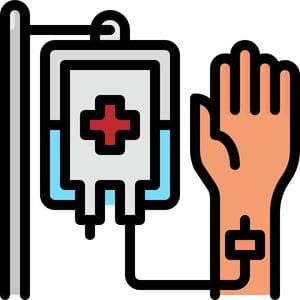In any profession, there are always things that need to be done. In the field of nursing, some tasks come naturally while other tasks may come with a little more difficulty. Based on our observation from social media across the internet, we came up with a list of the “10 most hardest tasks as a nurse”, and here they are:
1. Poor Staffing
One of the most difficult tasks a nurse may encounter is when there are not enough staff members on duty to assist patients. This can result in nurses having to care for multiple patients at once, which is both physically and mentally taxing. On the other hand, if too many people are present, this can cause confusion within hospital patient corridors resulting in further injury.
2. Never Being Good Enough
Nurses who have a perfectionistic work ethic, or simply want to provide top-quality care for patients, can find it extremely difficult when they are unable to live up to their own personal expectations. This becomes even more challenging when a patient’s health deteriorates after being cared for by that nurse. In some cases, nurses assume responsibility and blame themselves for the poor outcomes of certain patients on their watch–a selfless yet challenging task!

3. Dealing with Coworker Challenges
An issue that may be challenging for nurses, especially in the workplace, is when they have to work alongside other healthcare workers who are not doing their job correctly. This can cause problems for patients and fellow nurses alike, which often leads to arguments between staff members. Furthermore, it’s important that nurses do not take other people’s behaviors personally so as to avoid feeling attacked or offended.
4. Dealing with Death
This is, perhaps, one of the most difficult tasks in nursing. Nurses are often faced with death at some point in their career, especially if they work in a hospital, skilled nursing facility, or hospice. The experience may be easier for those who quit nursing as they will not have to deal with death as often.
5. Assessing Pain Levels
Nurses are often involved in assessing pain levels, but this can be an extremely difficult course of action. Nurses may not want to hurt their patients with the vast amount of needles that are needed for these purposes. They need to do their best to stick out the pain and assess accurately so that proper medications can be administered accordingly.
6. Removing Catheters
Removing urinary catheters is one of the most unpleasant tasks a nurse will have to perform during his or her career. It’s important that they put on gloves before attempting removal as it is necessary for infection control purposes. Furthermore, nurses are advised not to let patients handle their own urinary catheter tubes as it could lead to self-injury.
7. Take Care of an Elderly Person with Dementia
Taking care of an elderly person who is currently living with dementia can be one of the most difficult tasks for a nurse. This includes rendering assistance during bath time. Some patients may not want to participate in baths, especially if they are confused about their surroundings, which makes it even more difficult for nurses to complete this task.

8. Administering IVs
In many cases, nurses administer intravenous medications through an intravenous catheter that was placed by a physician. This task alone may prove challenging due to the potential catheter being blocked or hard to access, thus requiring nurses to try different insertion sites until they find one that works for each individual patient.
9. Inserting Catheters in Male Patients
Insertion of urinary catheters in male patients can be difficult for female nurses who are not used to the anatomical difference. Insertion of catheters in females is also challenging, but not nearly as much so due to less complicated anatomy. Male nurses may find it more difficult than their female counterparts to insert urinary catheters in male patients.
10. Obtaining Urine Specimens
A patient’s inability or difficulty in passing urine may require a nurse to obtain a urine specimen through various methods, such as bladder catheterization, urethral meatus cleansing, and ultrasound-guided bladder aspirations. It may be easier on some nurses if they have an assistant while attempting these tasks on other patients.
What do you think of the list? What was the hardest task for you as a CNA and what makes it difficult? Comment below and share with us!

